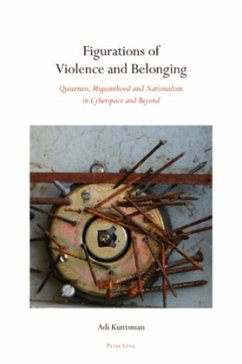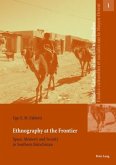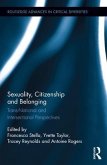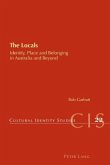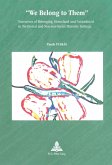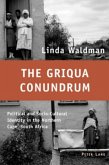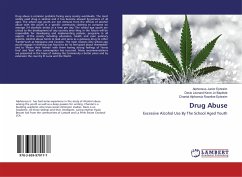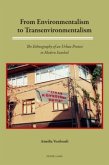This book offers a critical analysis of the complex relationship between violence and belonging, by exploring the ways sexual, ethnic or national belonging can work through, rather than against, violence. Based on an ethnographic study of Russian-speaking, queer immigrants in Israel/Palestine and in cyberspace, it gives an insight into the world of hate speech and fantasies of torture and sexual abuse; of tormented subjectivities and uncanny homes; of ghostly hauntings from the past and anxieties about the present and future. The author raises questions about the responsibilities of national homemaking, the complicity of queerness within violent regimes of colonialism and war, and the ambivalence of immigrant belonging at the intersection of marginality and privilege. Drawing from scholarship on migration, diaspora and race studies, feminist and queer theory, psychoanalysis and studies on cyberculture, the book traces the interplay between the different forms of violence - physical and verbal, social and psychic, material and discursive - and offers novel insights into the analysis of nationalism, on-line sociality and queer migranthood.
«Working through intersections of queer and homophobe, home and exile, presents and pasts, recognition and erasure, Adi Kuntsman traces the ghostly but no less wounding acts of violence that are the conditions of belonging in contemporary Israel/Palestine. Inhabiting sites both online and off she shows us the realness of virtual spaces, and the virtualities that haunt the real. Theoretically sophisticated and ethnographically rich, this book eschews any easy reconciliations as Kuntsman insists that violence and belonging must be thought through one another.» (Lucy Suchman, Centre for Science Studies, Lancaster University, UK)
«This book bravely and creatively opens up new paths to understanding Russian-Israeli queer subjects by figuring with and through the affective dimensions of their political and cultural lives. Utterly convincing and provocative in her assertions regarding the haunted travels, violent histories and discordant discourses of these queers, Kuntsman offers us a work that will be an exemplar for future research in the field.» (Martin F. Manalansan IV, author of 'Global Divas: Filipino Gay Men in the Diaspora')
«Adi Kuntsman has produced a compelling study of forms of violence and their constitutive and connective capacities for and between queer subjects. Her eloquent interrogation of Israeli nationalism and anti-Palestinian sentiment in relation to queerness is a valuable contribution to the scholarship on sexuality and nationalism, not to mention, urgently needed in these times.» (Jasbir K. Puar, author of 'Terrorist Assemblages: Homonationalism in Queer Times')
«Adi Kuntsman's new work takes the field a step further to theorize the complicated connections between immigration, sexuality, national belonging, and how violence (as discourse and practice) figures into the ways people communicate and create community - online and in real time. In doing so, she contributes an important case study about an understudied community (Russian-Israeli LGBT Jews) and a highly critical perspective on discourses of nationalism, belonging, and violence. (...) 'Figurations of Violence and Belonging' is an important work, in the scope of the sophisticated questions the author asks, in the number of literatures Kuntsman deploys, and in its contribution to understanding post-Soviet Jewish identities. No doubt the books contributes to the growing literature at the intersection of migration theory and queer studies.» (Caryn Aviv, Slavic Review)
«This book bravely and creatively opens up new paths to understanding Russian-Israeli queer subjects by figuring with and through the affective dimensions of their political and cultural lives. Utterly convincing and provocative in her assertions regarding the haunted travels, violent histories and discordant discourses of these queers, Kuntsman offers us a work that will be an exemplar for future research in the field.» (Martin F. Manalansan IV, author of 'Global Divas: Filipino Gay Men in the Diaspora')
«Adi Kuntsman has produced a compelling study of forms of violence and their constitutive and connective capacities for and between queer subjects. Her eloquent interrogation of Israeli nationalism and anti-Palestinian sentiment in relation to queerness is a valuable contribution to the scholarship on sexuality and nationalism, not to mention, urgently needed in these times.» (Jasbir K. Puar, author of 'Terrorist Assemblages: Homonationalism in Queer Times')
«Adi Kuntsman's new work takes the field a step further to theorize the complicated connections between immigration, sexuality, national belonging, and how violence (as discourse and practice) figures into the ways people communicate and create community - online and in real time. In doing so, she contributes an important case study about an understudied community (Russian-Israeli LGBT Jews) and a highly critical perspective on discourses of nationalism, belonging, and violence. (...) 'Figurations of Violence and Belonging' is an important work, in the scope of the sophisticated questions the author asks, in the number of literatures Kuntsman deploys, and in its contribution to understanding post-Soviet Jewish identities. No doubt the books contributes to the growing literature at the intersection of migration theory and queer studies.» (Caryn Aviv, Slavic Review)

